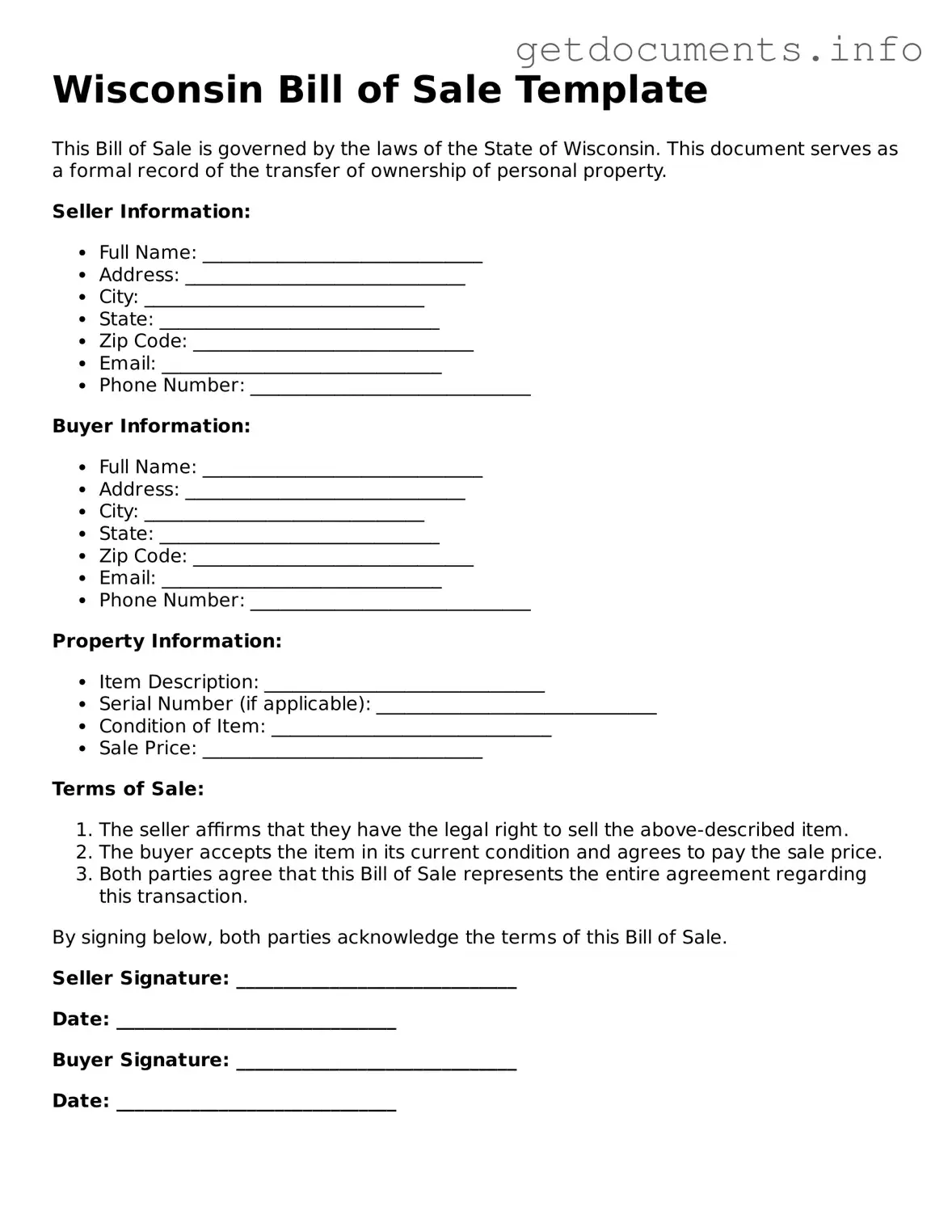Free Bill of Sale Template for Wisconsin
A Wisconsin Bill of Sale is a legal document that records the transfer of ownership of personal property from one party to another. This form serves as proof of the transaction and can be important for both the buyer and seller. To ensure a smooth process, consider filling out the form by clicking the button below.
Access Bill of Sale Editor

Free Bill of Sale Template for Wisconsin
Access Bill of Sale Editor
Got places to be? Complete the form fast
Fill out Bill of Sale online and avoid printing or scanning.
Access Bill of Sale Editor
or
⇩ PDF File
